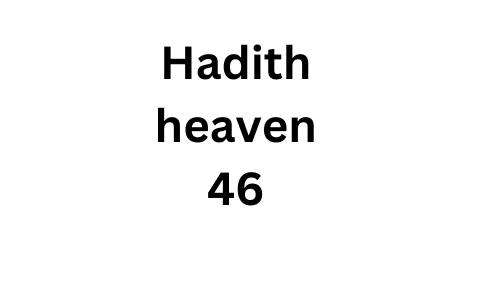The Meaning and Significance of Bismillah-ir-Rahman-ir-Rahim
Introduction
“Bismillah-ir-Rahman-ir-Rahim” is an Arabic phrase that translates to “In the name of Allah, the Most Gracious, the Most Merciful.” It is one of the most frequently recited phrases in the Muslim world and carries profound spiritual, moral, and practical implications. Found at the beginning of 113 chapters of the Quran (except Surah At-Tawbah), this phrase is often the first words a Muslim utters when embarking on any task, as it serves as a reminder of Allah’s presence, guidance, and infinite mercy.
This phrase, known as the Basmalah, not only signifies the beginning of the Quranic chapters but also acts as a constant invocation of Allah’s blessings and mercy in a Muslim’s daily life.
The Structure of the Phrase
The phrase “Bismillah-ir-Rahman-ir-Rahim” is composed of three key elements:
1. Bismillah (بِسْمِ ٱللَّٰهِ)
- Translation: “In the name of Allah”
- Meaning: This part of the phrase calls upon Allah’s name before engaging in any action. It reflects a recognition that Allah is the source of all strength, guidance, and power. By saying Bismillah, a Muslim acknowledges their reliance on Allah and seeks His assistance and blessings for success in their endeavors.
2. Ar-Rahman (ٱلرَّحْمَٰنِ)
- Translation: “The Most Gracious”
- Meaning: Ar-Rahman is one of Allah’s 99 names and highlights His all-encompassing mercy and grace. This divine attribute refers to the general mercy that Allah bestows upon all of His creation—humans, animals, and the entire universe. It is a mercy that covers every living being, regardless of their faith, behavior, or deeds.
3. Ar-Rahim (ٱلرَّحِيمِ)
- Translation: “The Most Merciful”
- Meaning: Ar-Rahim emphasizes Allah’s special mercy reserved for the believers. While Ar-Rahman reflects Allah’s universal compassion, Ar-Rahim denotes the specific, continuous, and eternal mercy Allah grants to those who have faith and strive to live righteously. It suggests Allah’s closeness to those who seek His guidance and forgiveness.
The Spiritual Significance
1. Seeking Allah’s Help
When a Muslim says “Bismillah-ir-Rahman-ir-Rahim”, they consciously place their trust in Allah. This invocation recognizes that without Allah’s will, nothing can occur. It is an acknowledgment that success, protection, and sustenance come solely from Him. Beginning any task with this phrase is a reminder to seek Allah’s guidance in every moment, fostering a sense of dependence on the Divine.
2. Reminder of Allah’s Compassion and Mercy
By invoking the attributes of Ar-Rahman and Ar-Rahim, the phrase emphasizes Allah’s boundless mercy. It reassures believers that no matter the situation, Allah’s mercy and compassion are always available. It serves as a source of comfort and hope, especially during times of hardship and uncertainty.
3. A Shield Against Negativity
The Basmalah acts as a protective measure, safeguarding the believer from harm, evil, and negativity. Muslims believe that reciting “Bismillah-ir-Rahman-ir-Rahim” before embarking on tasks such as traveling, eating, or even writing protects them from the influence of Shaytan (Satan) and brings divine blessings to the action.
Practical Application in Daily Life
The phrase “Bismillah-ir-Rahman-ir-Rahim” is not just a religious or spiritual invocation but a guiding principle for how Muslims approach daily life. It is recited before:
1. Prayers and Acts of Worship
Every act of worship in Islam begins with the Basmalah. Whether performing the five daily prayers (Salah), reading the Quran, or making supplications (du’a), Muslims begin by acknowledging Allah’s name, seeking His approval and guidance in their acts of devotion.
2. Eating and Drinking
Muslims are taught to say “Bismillah” before eating or drinking to invoke Allah’s blessings on the food and to express gratitude for the sustenance provided by Him. The Prophet Muhammad (PBUH) emphasized this practice, encouraging his followers to be mindful of Allah’s provisions.
3. Starting a Task or Journey
Reciting “Bismillah” before beginning any significant task—whether it’s starting a new job, embarking on a journey, or entering into a business transaction—is an expression of trust in Allah’s guidance and success. It helps to purify one’s intentions and ensures that the action is aligned with Islamic principles.
4. Seeking Protection
Muslims recite “Bismillah-ir-Rahman-ir-Rahim” when seeking Allah’s protection from harm, evil, or fear. It serves as a spiritual shield, invoking Allah’s mercy and safeguarding believers from physical and spiritual dangers.
The Role of Basmalah in the Quran
As previously mentioned, the phrase “Bismillah-ir-Rahman-ir-Rahim” precedes 113 of the 114 chapters (Surahs) of the Quran. This consistent placement emphasizes the centrality of Allah’s mercy and compassion in the Quran’s message. The Basmalah is a constant reminder that the entire revelation is rooted in the divine qualities of grace and mercy, and it calls upon readers to approach the Quran with the same spirit of humility and reverence.
In Surah Al-Fatiha, which is often referred to as the “Opening” of the Quran, the Basmalah forms the first verse. Surah Al-Fatiha is recited in every unit of the Muslim prayer, making “Bismillah-ir-Rahman-ir-Rahim” one of the most frequently repeated verses in a Muslim’s daily life.

